Want to know which Social Media Platform is best for your business? Well, take a look at our evaluation as to where your industry should have the most success…
Since its inception, social media has been ever evolving – with new platforms emerging as older ones have fallen behind. From Facebook vs MySpace to YouTube vs TikTok, the competition between social networks has become part of 21st century culture.
This competition has thus had a ripple effect within the commercial and business world alike. Wherein previously, businesses would have evaluated between traditional media outlets and broadcasters as to where they sought exposure. They now look to the most suited social media platform for a space in which awareness of their brand and loyalty to it can resonate and thrive amongst their audience.
The spectrum of social media networks in 2021 paints a clear landscape of variety amongst the aims, functions, demographics and benefits that each platform has over another. Therefore, the best platform for a business to use will vary from industry to industry.
In this week’s blog, we’re going to take a deep drive into the function, demographics and benefits of some of the biggest platforms for businesses to use (Facebook, Instagram, Twitter and LinkedIn). Then we’re going to attribute which sectors would benefit most from these platforms when it comes to social media marketing.
With 48.5 million monthly UK users, Facebook is the go to platform for almost every business, no matter their industry or background. A community based platform it is certainly the most personal and perhaps the broadest church of the 4 main social media networks that we’re focusing on.
Businesses can use the platform for a multitude of different things. For example, e-commerce retailers will use it to publish and promote new products, whereas service based businesses can use the platform as a form of social proof and trust signal to potential customers.

Essentially as a platform Facebook should be utilised by every business. Whilst it will see a more direct return for some rather than others, as it is now part of most people’s everyday lives, there is an expectation amongst consumers that businesses have a presence here.
A visual based platform that has, and most probably will, always focused on images and videos. Instagram is a platform for showcasing your business in a fun and entertaining way, whilst building an engaged audience amongst target demographics.
In theory, Instagram should only be suited to those businesses that are selling a physical product, as having a well represented post that encompasses the best features or aesthetics of your product can work wonders on this platform.
Whilst there is a small amount of truth here, taking this view would be to discount the possibility of building things such as brand ambassadors or showcasing the culture of a service based business.
In full, this platform certainly has benefits for all – though it is true that those selling products rather than services and/or businesses that are targeting a younger age demographic will feel much more benefit from publishing content on this platform.
Okay, it might seem like this is a platform that only really appeals to B2B service providers – and we hear that. But, this is simply not always the case. Whilst around 80% of B2B social media leads come from this platform – it’s also the case that 122 million people globally received a job offer through the platform in 2020.
So the use of the platform doesn’t necessarily always have to be from a sales based perspective, or even brand awareness in some cases. Marketing a job is still marketing after all – and as job boards such as Indeed and Total Jobs are proving more and more costly for recruiters with either higher staff turnover or more ambitious expansion plans – no matter their industry LinkedIn is still a valuable platform for their business to be part of.
In essence, this platform will always be the home of B2B service providers, freelancers and consultants – but that should not alienate other industries from taking advantage of the many benefits LinkedIn has to offer.
Fast becoming the social media platform which replaces people’s need for news apps/websites. More and more so are people using a platform that deals in the equivalent of a social media soundbyte to consume information on their interests and current affairs in a more rapid fashion than traditional media outlets have ever offered it.
The second variable with the broadchurch which is a Twitter audience is that it is also populated with people who want to actively engage with celebrities and (more importantly) industry leaders in a more public-facing way than on other platforms such as LinkedIn.
Businesses can take advantage of the nature of the platform as a great way to inform an engaged audience of business updates as well as interacting with other industry leaders in order to build trust among consumers that they too are a high flyer in the industry.
Similar to Facebook, there are not really any businesses or industries who can’t in some way benefit from using Twitter as a platform to promote their business. However, unlike Facebook – Twitter is not a platform that will typically drive large volumes of sales and certainly is more of a trust signal to consumers rather that an active sales channel.


0 Comments